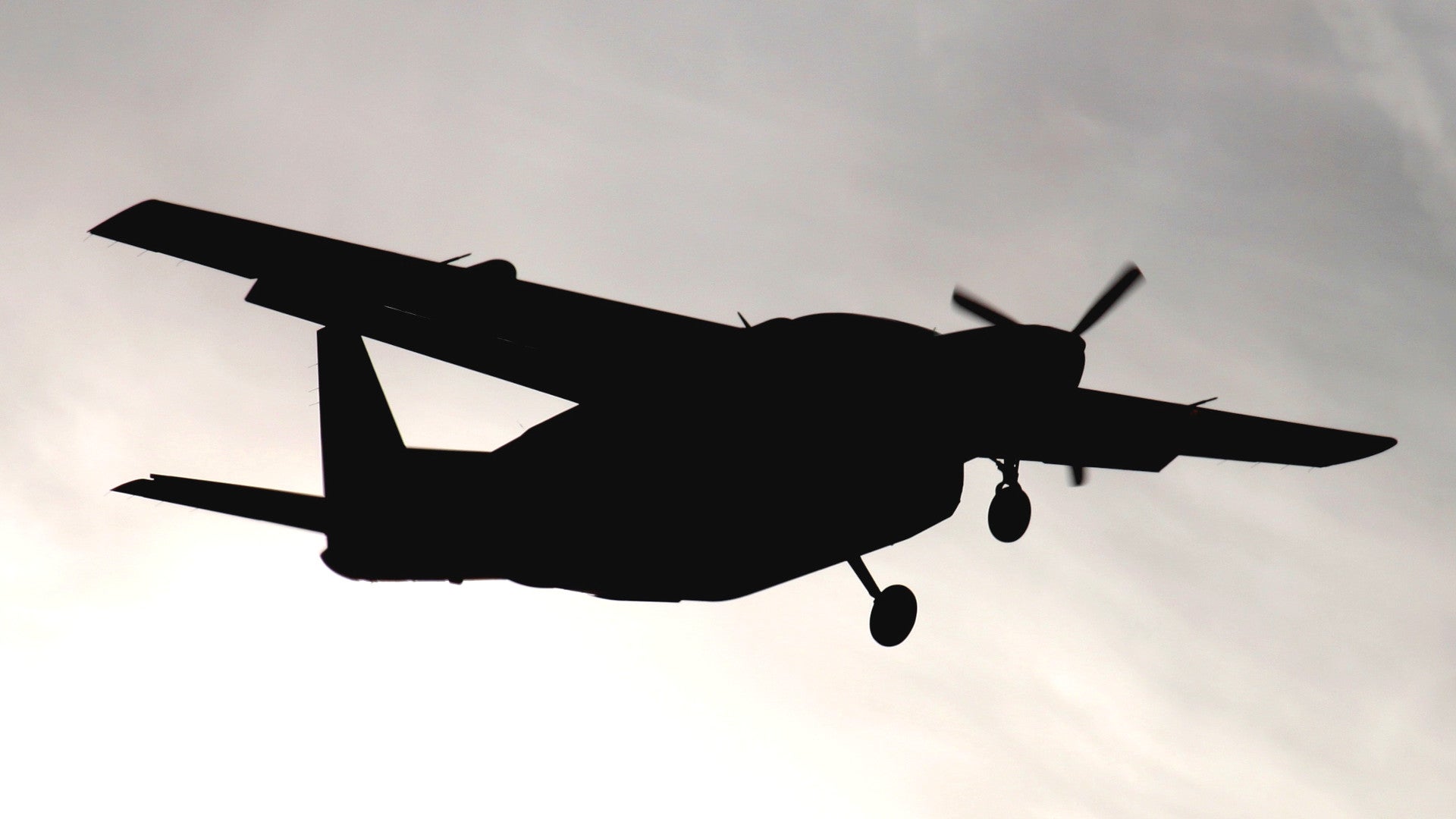More than a year ago, five members of the New York Police Department’s Aviation Unit were so mad at their supervisor they decided to take a specialized surveillance plane worth $4 million on a joy ride, flying a route in the shape of a large penis. The incident is the latest in a series of controversial incidents involving the aircraft, but also highlights another important detail, that New York’s Finest have a federally-funded aerial platform specifically set up to hunt for radiological weapons, or “dirty bombs,” at all.
The New York Post was first to report the Aviation Unit’s creative, but unauthorized use of the plane earlier in July 2018. The New York Police Department had obtained the modified Cessna C208B Grand Caravan, which carries the civil registration number N23FH, though a Preparedness Grant, also known as a “Non-Disaster” grant, from the Federal Emergency Management Agency (FEMA) in 2017. Fox Hotel Holdings of Ronkonkoma, New York, on Long Island, is the actual owner of the plane, according to Federal Aviation Administration’s records.
“As some applications may include details regarding public safety (e.g. law enforcement) they are not made publicly available,” FEMA told The War Zone in an Email. “This fixed-wing aircraft is deployed to conduct aerial surveillance and conduct first-response activities for critical infrastructure and key resources.”
Flying from MacArthur Airport on Long Island, the plane’s primary mission is searching for radiological hazards. FEMA explained that the Cessna has an unspecified “mobile airborne radiological detection system” that can collect data on baseline radiation readings around the city and spot potential unusual surges in radioactivity.

These spikes “may be indicators of manufacturing or transporting radiological weapons,” FEMA noted. One of these weapons, or dirty bombs, would use an explosive charge to spread some type of radioactive material. Though this wouldn’t create a nuclear explosion, it could give anyone unlucky enough to find themselves in the blast area radiation poisoning or otherwise contaminate a large area, at least in theory.
To find potentially threatening sources of radiation, the Cessna’s sensors system likely includes some sort of directional radiation sensor to zero in on potential areas of interest, as well as other equipment to take more general reading so help develop baseline radiation “maps” of New York City and surrounding areas. The New York Police Department could then use this information keep an eye out for any significant changes in ambient radiation levels.
The Cessna may also carry an air sampling system for further analysis of “hot spots” by personnel after the aircraft lands. The aircraft’s mission systems are also apparently capable of displaying this information in a visual format and the aircraft has a data link that allows the operators to share the information with personnel on the ground.
The configuration sounds very similar to the one another C208B, known as Airborne Spectral Photometric Environmental Collection Technology, or ASPECT, which the Environmental Protection Agency operates with contractor support. This plane, which you can read about in more detail here, also carries a wide-angle mapping camera and an infrared line scanner. If N23FH has a similar set of sensors, it could explain why officials say the aircraft is capable of conducting a variety of secondary surveillance missions.
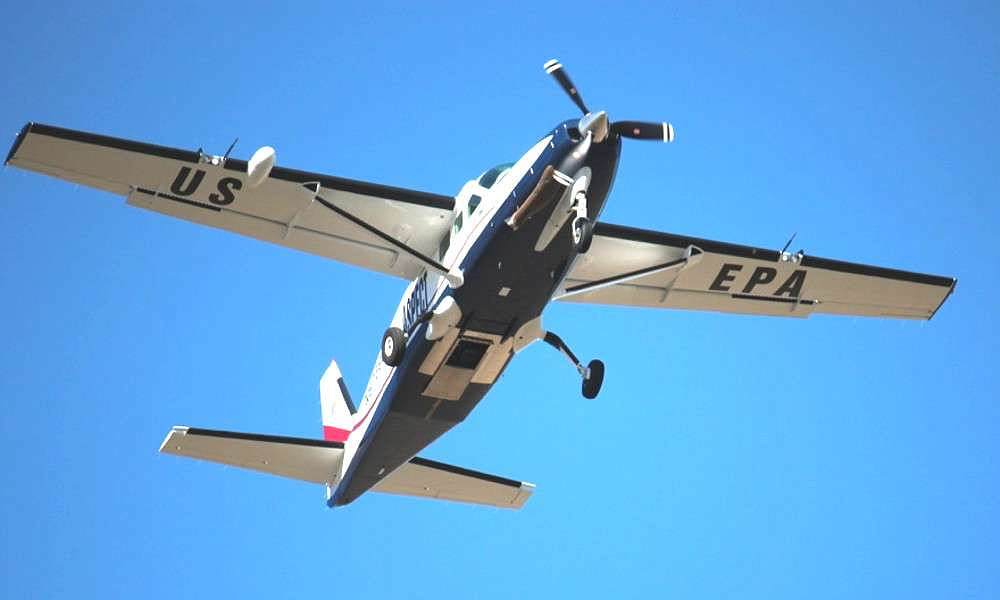
The Department of Energy also operates a Beechcraft King Air aircraft and Bell 412 helicopters similarly outfitted with sensors to take gather baseline radiation data after a nuclear incident to help map the possible spread of radioactivity as part of what it calls the Aerial Measuring System. These fixed and rotary wing aircraft can both transmit that information to a ground station in real time.
Typically, the King Air will make an initial survey of an impacted area, according to the Department of Energy’s website. The helicopters would then follow to take more detailed readings, flying as low as 150 feet off the ground.
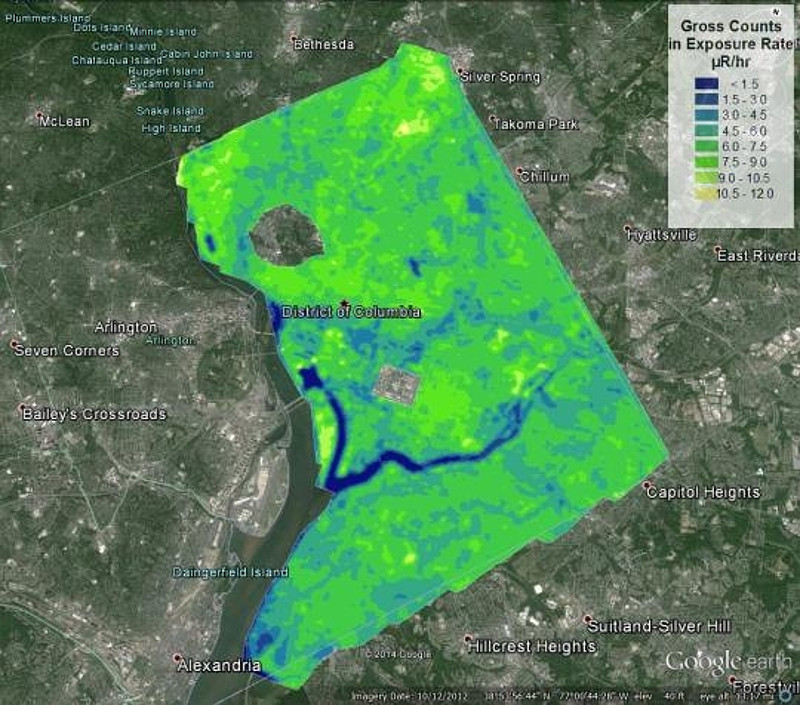
The New York Police Department has declined requests from other outlets for more information about the plane’s activities and the New York Post blurred out the N-number in its latest story sometime after publishing it. It’s also worth noting that the city’s police force had previously operated an unmarked Bell 412EP helicopter with the civil registration N23FH, which also carried specialized surveillance equipment. It’s unclear if they still have that helicopter or not, but, at least in that instance, the “23” in the registration was a reference to the 23 police officers who died on 9/11.
Since those infamous terrorist attacks, New York City has, not necessarily surprisingly, been on something of a state of perpetually heightened alert. The New York State National Guard even continues to operate a standing task force, called Joint Task Force-Empire Shield, to provide various on-calls support in the event of any terrorist attack or other major crisis in and around the city.
It’s still interesting that the New York Police Department decided to acquire an aircraft focused primarily on monitoring for “dirty bombs.” Experts continue to debate how realistic a threat these types of weapons actually pose and how easy it might be to craft one that would be capable of producing any sort of widespread danger.
For the city, this apparently remains enough of a potential threat that, in 2017, officials began an initiative to help medical facilities replace devices with radioactive components in order to prevent the possible theft of hazardous material for an improvised weapon. Individual police officers reportedly carry, or have carried, radiation dosimeters so they can also act as sort of mobile monitors.
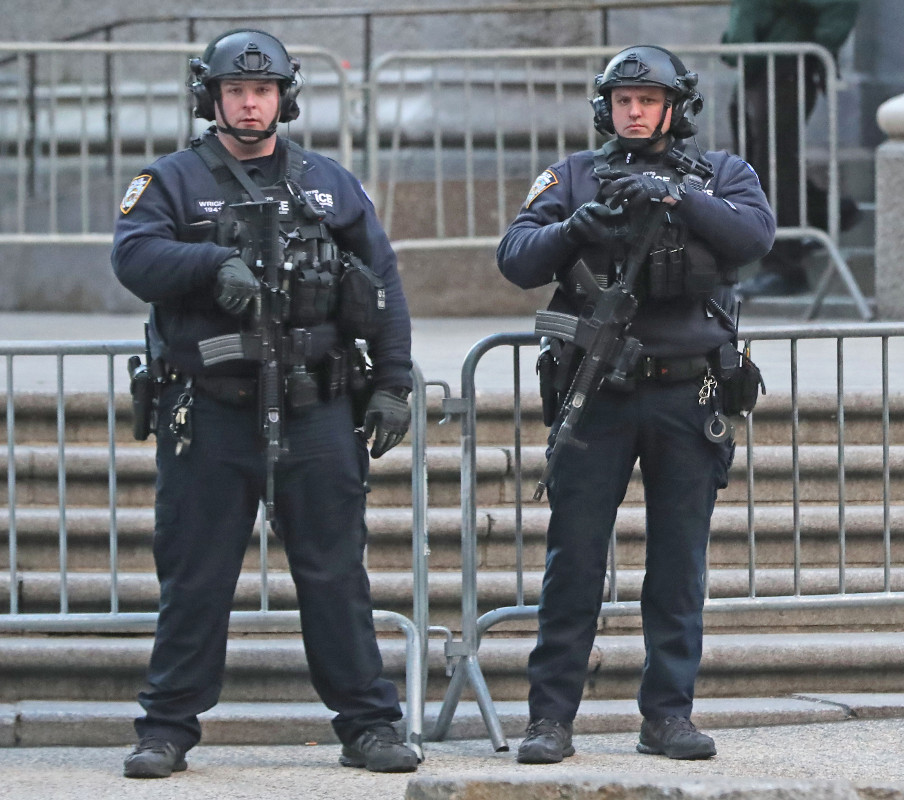
Still, how effective the C208 aircraft is at spotting possible dirty bombs isn’t clear. The officers who flew the plane in the phallus-shaped route – an apparently not unheard of way law enforcement and military aviators express displeasure with their superiors – around the city were specifically upset with how low they had to get to have a chance of collecting useful samples.
They felt that this put them at unnecessary risk when trying to scan ships sailing in the waterways around New York City. Their fear was that they would have little chance of gliding or otherwise making it to safety if the Cessna’s single engine gave out at these low altitudes, according to the Post.
Based on what we know from the Department of Energy’s Aerial Measuring System, N23H could have to fly very low to be able to gather detailed information that might actually point to the presence of a dirty bomb. This would seem to be a mission better suited to a helicopter-mounted sensor package.
Beyond its radiation sniffing mission, the plane has already become some of a lightning rod for other controversies. On July 5, 2018, the New York Post
reported that New York City Mayor Bill de Blasio had used the plane to fly from Canada, where he was on vacation with his family, back to the city for a memorial honoring a member of the force who had died in the line of duty.
Then, on July 16, 2018, the Post
uncovered that members of the New York Police Department had, in 2017, used the Cessna to travel to Allentown, Pennsylvania for a wake for the mother of then-Chief of Detectives Robert Boyce. City officials have dismissed allegations that they are misusing the plane.
“As far as using the plane, we did not see any obstacles. I don’t think there’s going to be pushback from Washington,” New York City Police Commissioner James O’Neill said of de Blasio’s flight specifically on July 10, 2018. “We didn’t ask for clearance, and I haven’t heard from them.”
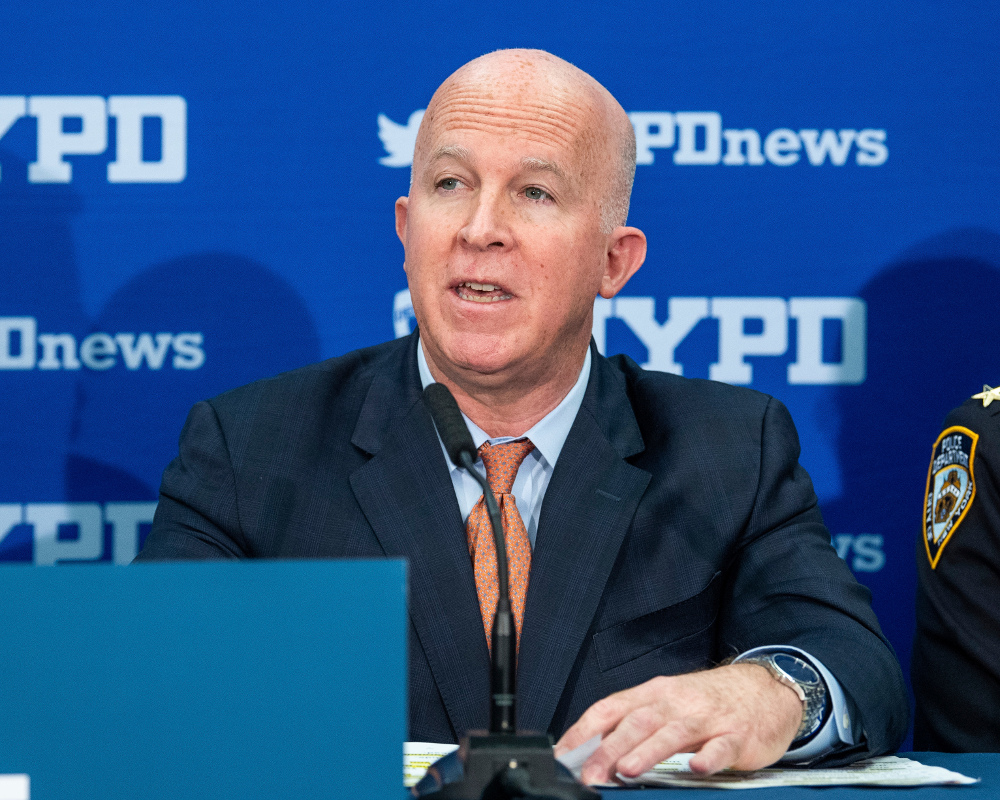
O’Neill thought wrong and FEMA told the Post that it is now looking into whether or not the New York Police Department has violated the terms of the grant. If nothing else, it’s hard to imagine that the joy ride was approved in the agreement.
In its Email to The War Zone, FEMA said that it could impose various penalties on the department if they found it had been wasting government money. These punishments could include withholding cash payments until the situation is sorted out, forcing New York City to pay FEMA back what it wasted on the various flights, suspending or terminating the deal entirely, and even blocking the city from getting any new grants in the future.
The city already disciplined the individuals involved in the incident with the penis-shaped flight path, so that might be enough for FEMA in that particular case. It remains to be seen how the agency will view the trips that Boyce or de Blasio took in the Cessna.
We’ll definitely be keeping our eye out for any another unusual activity from N23FH.
Contact the author: jtrevithickpr@gmail.com
